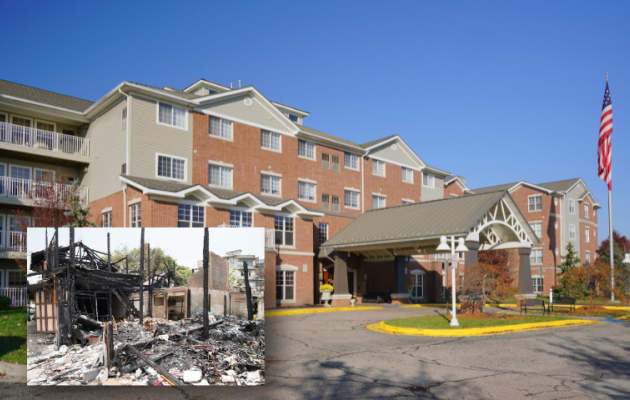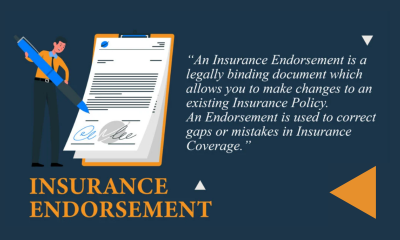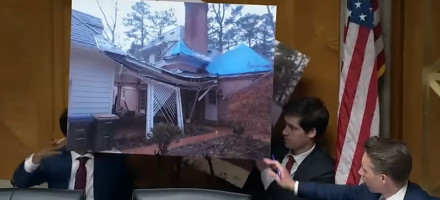Dissecting Replacement Cost Valuation After a Fire Loss
In the intricate landscape of insurance valuations for nursing homes, fire incidents pose multi-faceted challenges. The road to recovery demands a deep dive into the distinction between Replacement Cost Valuation (RCV) and Actual Cash Value (ACV). RCV might seem straightforward: it compensates for the cost of replacing damaged property without a deduction for depreciation. Yet, it’s intertwined with a maze of co-insurance clauses, which stipulate the percentage of property value that needs to be insured. Failure to meet these stipulations can lead to co-insurance penalties, diminishing the claim payout and leaving nursing homes to bridge a potentially significant financial gap.
ACV, however, takes depreciation into account, which can lead to pitfalls such as:
- Depreciation Deduction: The compensation considers the age and wear of the damaged property.
- Potential for Undercompensation: Facilities might find themselves receiving less than the needed amount for restoration, especially with specialized equipment or features.
- Higher Deductibles: Elevated deductibles for ACV can amplify financial strain.
- Budgeting for Upgrades: Compensation might not cover upgrades or improvements, especially if required by modern building codes.
- Economic Impact: Reduced compensation can affect the level of care, possibly resulting in a loss of residents.
Consider Elmwood Nursing Facility, a blend of historic charm and modern amenities, valued at $5 million. After a devastating fire causing damages estimated at $2 million, they faced an insurance crossroads: RCV or ACV? Elmwood opted for RCV, aiming to restore their unique facility to its original grandeur based on current market prices for materials and labor, without depreciation deductions. However, they were challenged by co-insurance clauses. While they had ensured the facility close to its value, a slight shortfall meant a minor reduction in their payout. Had they gone with ACV, the payout would've accounted for wear and tear, significantly impacting their ability to faithfully restore Elmwood's antique elements.
Elmwood's choice of RCV, despite the co-insurance hiccup, ensured a more comprehensive restoration, highlighting the critical considerations establishments face while considering RCV vs. ACV.
In conclusion, fire incidents, while daunting, can be managed with strategic foresight in insurance valuations. RCV offers the promise of complete restoration without depreciation setbacks, making it ideal for facilities aiming to rebuild to their original state. ACV, on the other hand, might appeal to those looking for lower premiums, but with the understanding that compensation factors in the wear and tear of the property. Both paths come with their complexities and trade-offs. Nursing home proprietors must harness this knowledge, paired with expert advice, to tackle claims challenges effectively.
__________________
About the Author
Stuart Dorf, JD, CPAU | Executive Vice President
Stuart Dorf, JD, CPAU, Executive Vice President at Globe Midwest™ Adjusters International, is a licensed public adjuster, appraiser, umpire, and attorney who specializes in securing fair insurance claim settlements for property and business owners. With over 20 years of experience in commercial real estate, law, and marketing, he holds licenses in multiple states, actively participates in legal associations, and has a strong entrepreneurial background. He earned his law degree from the Illinois Institute of Technology’s Chicago-Kent College of Law and graduated with honors from Tulane University.
sdorf@globemwai.com | 248.915.0399
Yossi Gottfried, MSA | Regional Vice President
Yossi Gottfried, MSA, Regional Vice President at Globe Midwest™ Adjusters International, is a forensic accountant specializing in business interruption claims. Yossi leads the firm's nursing home/assisted living facility practice group, advising operators on large insurance claims. His expertise lies in applying insurance policy formulas to accurately assess income loss due to property damage, ensuring clients receive a claim reflective of the true monetary value. He holds a Bachelor of Science in Finance from Yeshiva University and a Master’s in Accounting from Wayne State University.
ygottfried@globemwai.com | 248.885.3902








